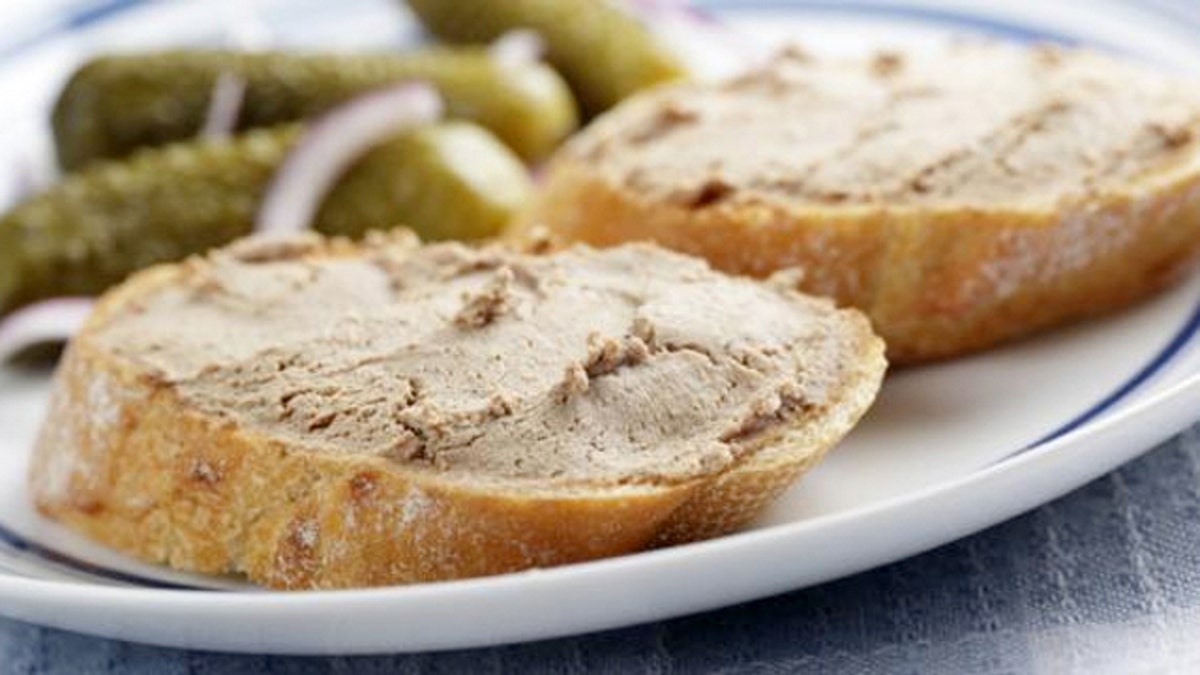
California banned foie gras -- made from goose or duck livers enlarged by force-feeding through funnel-like tubes --but not all chefs complied. (iStock)
With California’s foie gras ban set to take effect July 1, the food fight between animal rights activists and those battling to repeal the law is ruffling more than a few feathers.
California chefs – in the run up to the ban on force-fed fattened duck livers -- have been holding special foie gras -focused events as a last hurrah. This has reportedly enraged the foie gras objectors who have recently been out in force, staging protests at restaurants like Mélisse in Santa Monica.
“People are allowed to eat food, not allowed to torture [it] first,” SPCALA President Madeline Bernstein told CBS.
But chefs say they’re being terrorized by activists who post their pictures on extremist animal-rights websites, and are using social media to stage protests. One prominent East Coast chef (who asked that his name not be used) told FoxNews.com that he received notes telling him they know where his family lives.
Chef Dan Moody, known for his pop-up restaurants in Southern California, wrote on his blog The Relation Chef, that activists are waging organized attacks on those restaurants that reject the ban by writing false reviews. “These reviews are in direct violation of Yelp’s Terms of Service, and Yelp needs to take action to correct this immediately.”
Bad boy chef Anthony Bourdain tweeted earlier this week about radical activists using telephoto lenses to shoot chefs’ children and then send chefs the pictures. He followed up: “Every time a chef is threatened someone should skin a panda.”
In 2004 California Senate Bill No.1520 was passed that bans foie gras, saying that “gravage,” or force-feeding ducks to enlarge their livers, was cruel and inhumane. The law also prevents the sale of products resulting from force-fed ducks like duck meat, pet food and clothes. Included in the law was a seven-and-a-half year grace period--now coming to an end.
As a last ditch effort, the Coalition for Humane and Ethical Farm Standards (CHEFS), a group of 100 chefs, is now trying to repeal the ban, and has put forth a set of humane practices for raising ducks, just as S.B. 1520 called for. SPCA’s says Bernstein, it's just too late.
So why aren’t animal rights activists and those opposed to foie gras basking in the glory over the mainly appetizer-only-ingredient for the 1 percent?
Case in point: John Burton, chairman of the California Democratic Party who in 2004 helped write the law, recently said of CHEFS’ chefs: “I'd like to sit all 100 of them down and have duck and goose fat—better yet, dry oatmeal—shoved down their throats over and over again.”
Restaurateur Mark Pastore, co-owner of Incanto, accused Burton of bullying chefs and demanded an apology. Pastore told FoxNews.com that the battle over foie gras goes beyond the California law, and has become "the new litmus test for political correctness.” He and other chefs say the fois gras ban paves the way for the next “too-cruel-to-eat” ban.
In the past, efforts to ban foie gras have been quashed in 12 other states. Chicago initially outlawed foie gras city-wide in 2006, but reversed itself less than two years later. Foie gras could still be sold in gourmet stores, and unlike the California law, didn't prohibit the sale of other products from fattened ducks like duck confit, tongues and feet.
Ariane Daguin, one the country’s leading foie gras distributors and a member of the Artisan Farmers Alliance says that activists are agitating for foie gras bans in other states that have no foie gras production to ban, “to set the precedent for future food bans” on items like fish, poultry and other meats.
Calls we made to one of California’s most radical groups, the Animal Rights & Protection League, went unanswered. But Jennifer Scarlett writing on SFGate said it is part of a bigger debate over the treatment of our food.
“It doesn’t mean going hungry—as for foie gras, let’s face it, the 99% of folks who haven’t tried it won’t miss it—but it will take willpower to resolve to improve the brief lives of the billions of chickens and cattle that make up our cheap meat habit,” she wrote.
Pastore and Daguin say activists have a bigger agenda, and are gunning for companies such as Patagonia and The North Face because their products contain force-fed duck feathers and down.
Pastore says they're using some radical tactics to do it. The foie gras battle is "an asymmetrical debate where activist are claiming the moral high-ground," he said, while going after the those who support fois gras, and their children. They argue for “specifically prescribing behavior” and “use terrorist tactics to achieve it.”




















